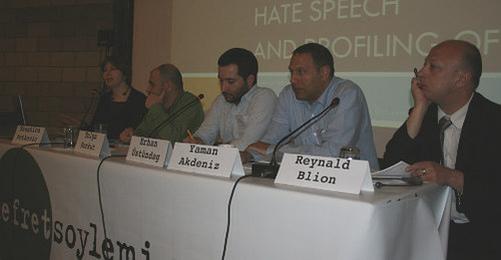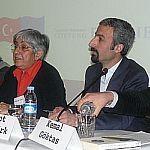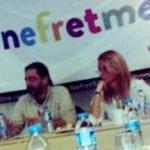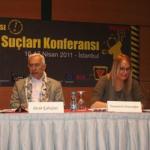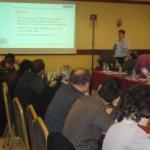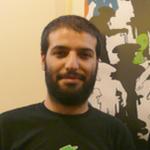Activists, journalists and academics emphasized the the role of the media for discrimination in a session on "The Media's Stand on Discrimination and Hate". The participants pointed out that journalists are able and obliged to struggle against discrimination. The event was part of the "Conference on Hate Speech and Hate Crimes" organized by the International Hrant Dink Foundation at Bilgi University in Istanbul from 9-12 April.
Brankica Petkovic from the Ljubljana Peace Institute in Slovenia clarified her views with the example of discrimination against Romani reflected in the media of her country.
Petkovic compared the racist attacks against Romani in a village close to the city of Manisa in western Turkey in the beginning of this year with similar experiences in Slovenia in 2006. She criticized that the voices of the Romani were not heard in the media reports. According to Pekovic, excluding people from the media is a way of excluding this people from society.
"Minorities should be heard"
Petkovic conceded that the attitude of journalists has changed already due to media monitoring reports, statistics, legal amendments and ethic codes. However, there is much more left to be done according to Petkovic.
"Minorities have to get in a word edgeways in the media in order to strengthen them and to work together with the society and the minorities directly".
Blion: Journalist should work together to find new ways
Reynald Blion from the European Council Directorate for Education, Culture, Cultural Heritage, Sports and Youth Work is part of the team of the "Voice against Discrimination" campaign in Europe.
Blion defined discrimination as a topic mainly related to minority rights. He talked about discrimination related to freedom of speech, about a necessary ban of discrimination and the need to provide media access to minorities.
Blion emphasized that journalists from different countries should come together to work on new ways of dialogue between cultures.
Korkut: Journalist Price for Struggle aganist Discrmination
bianet editor Tolga Korkut, awarded for the struggle against discrimination, highlighted the importance of rights journalism and explained techniques for peace journalism.
Korkut indicated that journalists should not be neutral but on the side of rights. The journalist talked about the importance of changing the masculine and sexist language of militarism and nationalism that renders discrimination and rights violations. Claims of rights, struggles and achievements should be communicated and the news should reflect the diversity of the society, according to Korkut.
The editor also mentioned invisible discrimination rendered in the field of economic, cultural and social rights, drawing attention to the fact that journalists should focus on economic politics of discrimination. (TK/VK)





